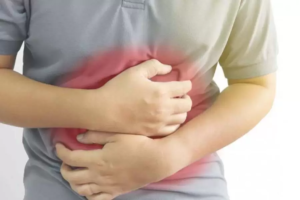
Introduction
Colon pain can be an unsettling experience. Whether it’s a mild discomfort or sharp cramps, understanding the causes and how to manage it effectively is essential. Colon pain often arises from issues in the digestive tract, such as irritable bowel syndrome (IBS), inflammation, or even dietary choices. Seeking help from the top 10 gastroenterologists in Surat can be your first step toward identifying the root cause and finding the right treatment plan. This guide explains the common causes of colon pain, proactive steps to manage it, and when to see a doctor.
What Causes Colon Pain?
Colon pain originates in the large intestine and can have multiple causes. Here are some common reasons:
1. Irritable Bowel Syndrome (IBS)
IBS is a functional disorder that affects how your colon works. It may cause bloating, cramping, and changes in bowel habits. Triggers often include stress, certain foods, or hormonal changes.
2. Constipation
When stool builds up in the colon, it can cause significant pain and discomfort. Constipation is often due to low fiber intake, dehydration, or a sedentary lifestyle.
3. Inflammatory Bowel Disease (IBD)
Conditions like Crohn’s disease and ulcerative colitis are chronic inflammatory disorders that can lead to severe colon pain. These conditions often require medical management and monitoring.
4. Diverticulitis
This occurs when small pouches in the colon become inflamed or infected. It can cause sudden and sharp pain, usually on the left side of the abdomen.
5. Dietary Factors
Consuming gas-producing foods, such as beans or carbonated drinks, or food intolerances, like lactose intolerance, can result in temporary colon pain.
6. Colon Cancer
Although less common, persistent colon pain should not be ignored, as it could signal something serious like colon cancer.
Proactive Steps to Manage Colon Pain
Managing colon pain often involves lifestyle adjustments, dietary changes, and sometimes medical treatment. Here are some proactive steps to help you feel better:
1. Maintain a High-Fiber Diet
Fiber plays a vital role in keeping your digestive system functioning smoothly. Include fruits, vegetables, whole grains, and legumes in your diet. These foods can help prevent constipation and improve bowel movements.
2. Stay Hydrated
Drinking plenty of water aids digestion and prevents constipation. Aim for at least 8-10 glasses of water daily, especially if you consume a high-fiber diet.
3. Exercise Regularly
Physical activity promotes healthy bowel function and reduces the risk of constipation. Even a 30-minute walk daily can make a significant difference.
4. Practice Stress Management
Stress is a common trigger for IBS and other digestive issues. Techniques such as meditation, yoga, or deep breathing exercises can help reduce stress and alleviate colon pain.
5. Identify Food Triggers
Keep a food diary to track what you eat and how it affects your symptoms. Avoid foods that cause gas, bloating, or discomfort, such as fatty foods, caffeine, or artificial sweeteners.
6. Try Probiotics
Probiotics can help maintain a healthy balance of gut bacteria, improving digestion and reducing inflammation. Include yogurt or fermented foods like kimchi in your diet, or consider taking a probiotic supplement.
7. Over-the-Counter Remedies
For temporary relief, you can use over-the-counter medications like antacids or laxatives. However, these should be used sparingly and not as a long-term solution.
When to See a Doctor
While occasional colon pain can often be managed at home, there are times when you should seek medical attention.
Warning Signs Include:
- Persistent pain lasting more than a few days
- Severe abdominal cramping or sharp pain
- Blood in stools or black, tarry stools
- Unexplained weight loss
- Fever or chills accompanying pain
If you experience these symptoms, consult a trusted gastroenterologist in Surat to assess your condition and recommend appropriate treatments. Early diagnosis can prevent complications and improve your quality of life.
Medical Treatments for Colon Pain
If lifestyle changes don’t alleviate your symptoms, your doctor may recommend medical treatments tailored to the underlying cause.
1. Medications
- For IBS: Anti-spasmodics or fiber supplements can help manage symptoms.
- For IBD: Anti-inflammatory drugs, immunosuppressants, or biologics may be prescribed.
- For Constipation: Prescription laxatives or stool softeners can provide relief.
2. Surgical Options
For severe conditions like diverticulitis, colorectal surgery may be necessary to remove damaged portions of the colon.
3. Screenings and Tests
Your doctor may recommend tests like colonoscopy, CT scans, or blood work to identify the cause of your pain and rule out conditions like colon cancer.
Living a Pain-Free Life
Colon pain doesn’t have to disrupt your daily life. By adopting healthy habits, managing stress, and seeking timely medical care, you can significantly improve your digestive health. Regular check-ups with a specialist from the top 10 gastroenterologists in Surat can help you stay ahead of potential problems and keep your colon in top shape.
Final Thoughts
Colon pain is a common issue, but it’s one that you don’t have to face alone. By understanding the causes and implementing proactive management strategies, you can take control of your digestive health. If symptoms persist or worsen, don’t hesitate to consult a gastroenterologist in Surat for personalized care. After all, your health is worth every effort.
